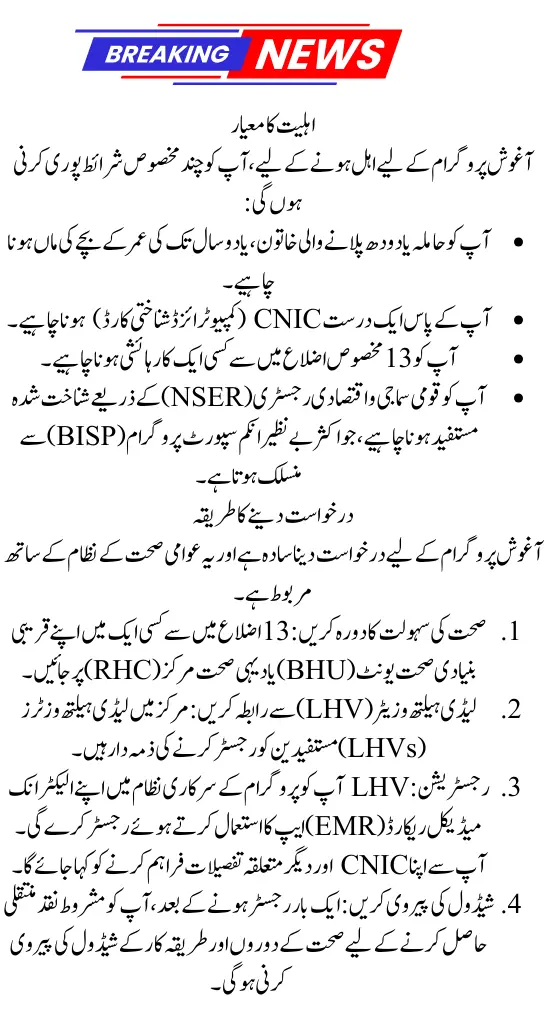To all new mothers and mothers-to-be in Punjab, the government’s new program is truly groundbreaking because it is designed to support your health and well-being, as well as that of your little one. The Aghosh Program is a large program that seeks to provide a wali board of financial support and health care to mothers in many of the most vulnerable districts in Punjab. The Aghosh Program is not a handout; it is a promise to the future of the next generation to build a happier and healthier future!
Key Features of the Aghosh Program
This is a unique program that provides maternal and child health services with a combination of financial assistance to give mothers and children the best start to life.
- Financial Assistance up to Rs. 23,000: The financial assistance is important and comes in installments for health-related visits, including antenatal visits, delivery, newborn checks, and vaccinations.
- Free Health Services: Participants can receive free health checks, trained birth assistance, and newborn checks in provincial health facilities.
- The First 1,000 Days: The program emphasizes mothers and newborns having optimal health and nutrition in the first 1,000 days of a child’s life.
- Implemented in 13 Districts: The program was launched in Punjab, targeting 13 hectares for which maternal and child health services were required the most.
Eligibility Criteria
To qualify for the Aghosh Program, there are some prerequisites:
- You are pregnant or breastfeeding your baby, or are the mother of a child not older than two years.
- You have a CNIC (Computerized National Identity Card).
- You are a resident of one of the 13 approved districts, and you are a beneficiary as identified in the National Socio-Economic Registry (NSER), which is usually linked with the Benazir Income Support Program (BISP).
Also Read: CM Rashan Scheme






